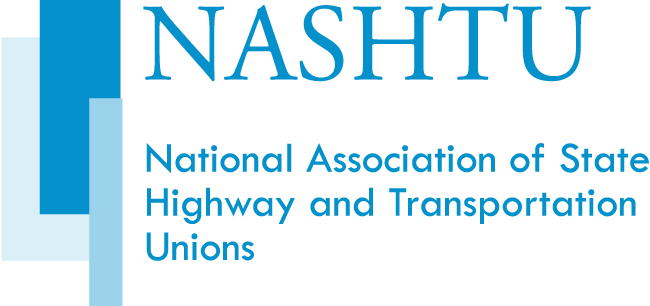NASHTU Legislative Priorities
NASHTU Priorities
NASHTU Priorities
Support for the Public Inspectors for Safe Infrastructure Act
To ensure that public safety is protected, transportation funds are not wasted, and projects are delivered in a timely manner, the Public Inspectors for Safe Infrastructure Act (Garamendi) will require public employees to perform the construction inspection on federally-funded state and local transportation projects. Public sector inspectors ensure that construction standards are met, that projects meet safety requirements and that the materials used will stand the test of time. Passage of this commonsense legislation will end the troubling practice of private contractors overseeing the work of other private contractors.
Require Cost Comparison for A&E Work
For architectural, engineering, and related services on surface transportation projects using federal funds, a government agency should prepare an estimate of the cost of procuring services under a private contract and an estimate of having the services performed by employees of a government agency. Doing so will help to determine which approach is most cost effective and in the public interest. In recent years, studies in California, Louisiana, Michigan, and Utah have found that outsourcing A&E services costs 2 to 3 times as much as using state employees to perform the same functions.
Oppose Outsourcing Mandates and Incentives
During previous transportation authorizations, NASHTU, along with a broad coalition of organizations including AASHTO, AFSCME, SEIU, PECG and other public and private sector stakeholders, worked together to block the inclusion of language that would mandate or incentivize the outsourcing of engineering and design services on federally funded projects. Outsourcing mandates or incentives are an inappropriate use of federal authority. NASHTU urges lawmakers to oppose similar proposals in the future.
Public-Private Partnerships (P3s) Should Serve the Public Interest
Many public-private partnership transportation projects have failed or gone bankrupt throughout the country. Congress should make sure that commonsense public interest protections are part of any P3 funding or authorization legislation – a costcomparison analysis should be performed prior to converting a project to a P3 and construction inspection must be performed by public agency employees to make certain that safety standards are met.
Job Safety in Transportation
Ensuring SAFETY on the job is our highest priority. Highway maintenance workers die on the job 3.7 times more often than the average American worker. Public employees in the transportation field must be assured that they will return home safely after working their shift. Transportation policy should prioritize safety from known challenges on the job and provide oversight to mitigate the effects of human error.
The federal government should also be doing more to protect workers from environmental concerns faced while working on transportation projects, including challenges with working outdoors during times of excessive heat or cold. NASHTU calls on the Occupational Safety and Health Administration to expedite the rulemaking process for developing a heat standard regulation.
State & Local DOTs Should Prioritize Staffing Levels
NASHTU member organizations believe it is critical to work together with State and Local transportation departments to enhance recruitment and retention programs in government service. The public employees who work for transportation departments have an important mission – providing for the safe and efficient movement of people and goods from place to place in our nation. To fulfill that mission, State and Local DOTs must be appropriately staffed with public-employed professionals rather than relying on over-priced consultants. Federal policies and regulations should be developed in a way that encourages State and Local DOTs to be fully staffed with publicly employed professionals dedicated to delivering safe and cost-effective transportation projects to the public.
